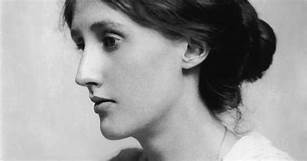VIRGINIA WOOLF, English feminist writer, died (b. 1882); English novelist and essayist regarded as one of the foremost modernist literary figures of the 20th century. During the interwar period, Woolf was a significant figure in London literary society and a member of the Bloomsbury Group. Her most famous works include the novels Mrs. Dalloway (1925), To The Lighthouse (1927), andOrlando (1928) and the book-length essay A Room of One’s Own (1929) with its famous dictum, “a woman must have money and a room of her own if she is to write fiction.”
After completing the manuscript of her last (posthumously published) novel Between the Acts, Woolf fell victim to a depression similar to that which she had earlier experienced. The war, the Luftwaffe’s destruction of her London homes, as well as the cool reception given to her biography of her late friend Roger Fry, worsened her condition until she was unable to work.
The ethos of Bloomsbury discouraged sexual exclusivity, and in 1922, Woolf met Vita Sackville-West. After a tentative start, they began a relationship that lasted through most of the 1920s. In 1928, Woolf presented Sackville-West with Orlando, a fantastical biography in which the eponymous hero’s life spans three centuries and both genders. It has been called by Nigel Nicolson, Sackville-West’s son, “the longest and most charming love letter in literature.” After their affair ended, the two women remained friends until Woolf’s death.
On March 28th 1941, rather than having another nervous breakdown, Woolf drowned herself by weighing her pockets with stones and walking into the River Ouse near her home. Her body was not found until April 18th. Her husband buried her remains under a tree in the garden of their house in Rodmell, Sussex.
In her last note to her husband she wrote: “I feel certain that I am going mad again. I feel we can’t go through another of those terrible times. And I shan’t recover this time. I begin to hear voices, and I can’t concentrate. So I am doing what seems the best thing to do. You have given me the greatest possible happiness. You have been in every way all that anyone could be. I don’t think two people could have been happier ’til this terrible disease came. I can’t fight any longer. I know that I am spoiling your life, that without me you could work. And you will I know. You see I can’t even write this properly. I can’t read. What I want to say is I owe all the happiness of my life to you. You have been entirely patient with me and incredibly good. I want to say that—everybody knows it. If anybody could have saved me it would have been you. Everything has gone from me but the certainty of your goodness. I can’t go on spoiling your life any longer. I don’t think two people could have been happier than we have been.”
